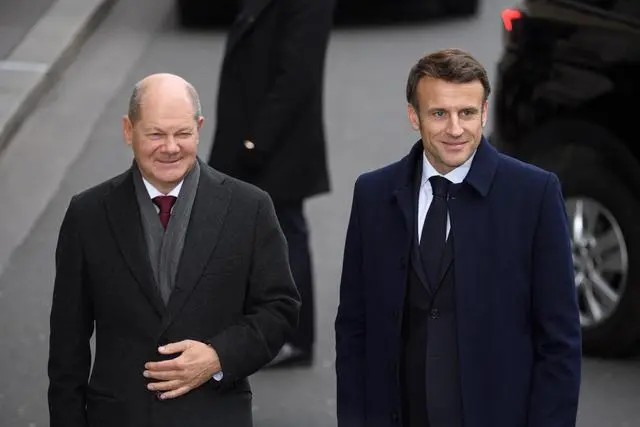
Recently, new French Prime Minister Gabriel Attar visited Berlin, Germany, where he held talks with the German side on international hotspot issues such as Ukraine and improving Franco-German relations. This is Mr. Attar's first trip abroad since taking office. For this visit, the French Prime Minister's office said that the new government pays attention to promoting and strengthening Franco-German relations; A spokesman for the German chancellor said the talks would cover all "bilateral, European and international" topics as well as economic policy issues. So, as the "Franco-German axis" of the EU, in the new domestic and international economic environment and international geopolitical environment, where will it go?
The "Franco-German axis" usually refers to the close cooperation between France and Germany, the two major European countries, on political, economic and security matters. This partnership is often seen as a central driver of European integration, particularly within the EU and on the international stage. The Franco-German axis has faced many tests in its history, including economic crises, political disagreements, and geopolitical challenges.
In recent years, Europe has looked tired from all kinds of internal and external troubles. The author believes that many European countries are facing three internal worries, EU countries also have increasingly serious disputes between parties and political "fragmentation" crisis, farmers and agriculture crisis and energy and inflation crisis; There are also three foreign threats, such as the "long-arm jurisdiction" of the United States, the protracted conflict between Russia and Ukraine, and the sudden conflict in the Middle East and Gaza.
So, in the face of internal and external troubles, can the EU's "Franco-German axis" work together to get out of the crisis in a new round of competition? We can consider from the following aspects:
Economic and financial cooperation: The French and German economies are closely linked and both countries are core members of the Eurozone. They have demonstrated a strong ability to cooperate in dealing with regional and global economic crises, such as the European debt crisis. Such economic cooperation provides a solid foundation for dealing with economic difficulties.
Political and security policy coordination: When dealing with political issues and security challenges within Europe, such as the migration crisis, the threat of terrorism, and Russian aggression, France and Germany have often taken a unified position, striving to build consensus within the EU and promote a common response.
The promotion of European integration: France and Germany are the main forces promoting European integration, including expanding the influence of the EU, deepening the integration of the eurozone, and promoting European defense cooperation. This will help to enhance Europe's position and influence in global affairs and thus better respond to external challenges.
Challenges: While Franco-German cooperation has been successful on many fronts, they still face a host of challenges, including political differences within the two countries, dissent from other member states in Europe, and external geopolitical pressures. How to maintain unity in these challenges is the key to sustained and effective cooperation between the Franco-German axis.
In conclusion, the Franco-German axis has great potential to deal with internal and external problems, but its ability also depends on a number of factors, including the stability of the two countries' internal affairs, internal coordination in Europe, and effective response to external challenges. At the same time, Franco-German cooperation needs to constantly adapt to the changing international environment and internal challenges in order to maintain its important contribution to European integration and global political and economic stability.

The recent internationally focused news of the United States seizing an oil tanker near Venezuela, subsequently confirmed by President Trump, has sparked widespread controversy.
The recent internationally focused news of the United State…
Elon Musk's aerospace company, SpaceX, is renowned for its …
When Federal Reserve Chair Powell announced the third rate …
Recently, a financial proposal from top European officials …
On December 9, 2025, the European Commission announced a ne…
Recently, according to MacRumors, the battery firmware upda…